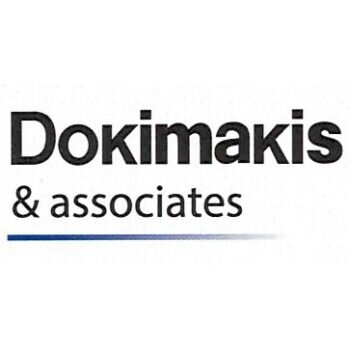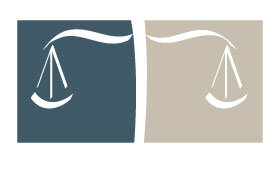Best Collaborative Law Lawyers in Greece
Share your needs with us, get contacted by law firms.
Free. Takes 2 min.
Free Guide to Hiring a Family Lawyer
Or refine your search by selecting a city:
List of the best lawyers in Greece
About Collaborative Law in Greece
Collaborative Law is an innovative legal approach that aims to resolve disputes outside of traditional court settings. In Greece, this method has been gaining traction as a preferred alternative for resolving conflicts, especially in family law. Collaborative Law focuses on negotiation and cooperation between parties to achieve mutually satisfactory solutions, facilitated by specially trained lawyers. This method reduces adversarial confrontation and often results in faster and less costly resolutions.
Why You May Need a Lawyer
Legal assistance in Collaborative Law can be crucial in various situations. Some common reasons you might require a lawyer include:
- Divorce or Family Disputes: When couples wish to separate amicably and need to address child custody, property division, or spousal support without courtroom battles.
- Business Disagreements: Collaborative Law can help resolve conflicts between business partners or in contractual disputes while preserving professional relationships.
- Parenting Issues: Creating parenting plans that serve the best interests of the children and ensure both parents agree to the terms.
Local Laws Overview
In Greece, Collaborative Law is part of a broader movement towards Alternative Dispute Resolution (ADR). The key aspects of relevant local laws include:
- Voluntary Process: Participation in Collaborative Law is entirely voluntary for all parties involved.
- Confidentiality: Discussions and negotiations in the collaborative process are confidential and cannot be used in court proceedings.
- Legal Framework: There are no specific provisions in Greek law exclusive to Collaborative Law; however, it is supported under the broader ADR mechanisms recognized by the Greek judicial system.
Frequently Asked Questions
What is Collaborative Law?
Collaborative Law is a legal process enabling parties to resolve disputes without going to court, focusing on negotiation, agreement, and mutually beneficial outcomes.
Is Collaborative Law recognized in Greece?
While Greece does not have specific laws on Collaborative Law, it is recognized as part of ADR practices within the legal framework.
How does Collaborative Law differ from mediation?
In Collaborative Law, both parties hire trained collaborative lawyers to advise and negotiate directly, as opposed to mediation where a neutral third party assists in reaching an agreement.
Can Collaborative Law be used for all types of disputes?
While particularly effective in family law, Collaborative Law can be adapted for various civil disputes, including commercial and real estate matters.
What happens if we can’t reach an agreement?
If an agreement isn’t reached, the process ends, and parties can pursue other legal avenues. Collaborative lawyers cannot represent their clients in court after a failed collaboration.
How are collaborative lawyers trained?
Collaborative lawyers in Greece undergo specialized training in negotiation, conflict resolution, and ADR principles to facilitate effective collaborative practices.
What are the benefits of Collaborative Law?
The main advantages include reduced costs, quicker settlements, less stress, and maintaining relationships between parties.
Is it possible to switch to Collaborative Law after beginning a court process?
Yes, parties may choose to move to collaborative negotiations at any time to avoid protracted litigation.
Who can participate in collaborative meetings?
In addition to the parties and their lawyers, other professionals such as financial advisors or child specialists may be involved to assist in reaching a comprehensive agreement.
What do collaborative negotiations involve?
Negotiations involve direct communication between parties, facilitated by their lawyers, focusing on interests rather than positions, seeking creative solutions.
Additional Resources
If you are seeking further information or assistance regarding Collaborative Law in Greece, consider reaching out to these resources:
- The Athens Bar Association: Provides guidance and listings for trained collaborative lawyers.
- Greek Ministry of Justice: Offers information on ADR practices and legal guidance.
- Local ADR Centers: Various centers provide resources and educational materials on alternative dispute resolution methods.
Next Steps
If you find that Collaborative Law might be the right approach for your situation, here are steps to consider:
- Research and Understand: Familiarize yourself with Collaborative Law principles and how they apply to your case.
- Consult a Collaborative Lawyer: Seek a lawyer who specializes in Collaborative Law to discuss your case and explore options.
- Consider Your Objectives: Clearly define what you hope to achieve through the collaborative process.
- Prepare for Meetings: Gather relevant information and documents to facilitate productive discussions with your lawyer and the opposing party.
By taking these steps, you can navigate the Collaborative Law process in Greece effectively and work towards achieving a satisfactory resolution to your legal dispute.
Lawzana helps you find the best lawyers and law firms in Greece through a curated and pre-screened list of qualified legal professionals. Our platform offers rankings and detailed profiles of attorneys and law firms, allowing you to compare based on practice areas, including Collaborative Law, experience, and client feedback.
Each profile includes a description of the firm's areas of practice, client reviews, team members and partners, year of establishment, spoken languages, office locations, contact information, social media presence, and any published articles or resources. Most firms on our platform speak English and are experienced in both local and international legal matters.
Get a quote from top-rated law firms in Greece — quickly, securely, and without unnecessary hassle.
Disclaimer:
The information provided on this page is for general informational purposes only and does not constitute legal advice. While we strive to ensure the accuracy and relevance of the content, legal information may change over time, and interpretations of the law can vary. You should always consult with a qualified legal professional for advice specific to your situation.
We disclaim all liability for actions taken or not taken based on the content of this page. If you believe any information is incorrect or outdated, please contact us, and we will review and update it where appropriate.
Browse collaborative law law firms by city in Greece
Refine your search by selecting a city.














